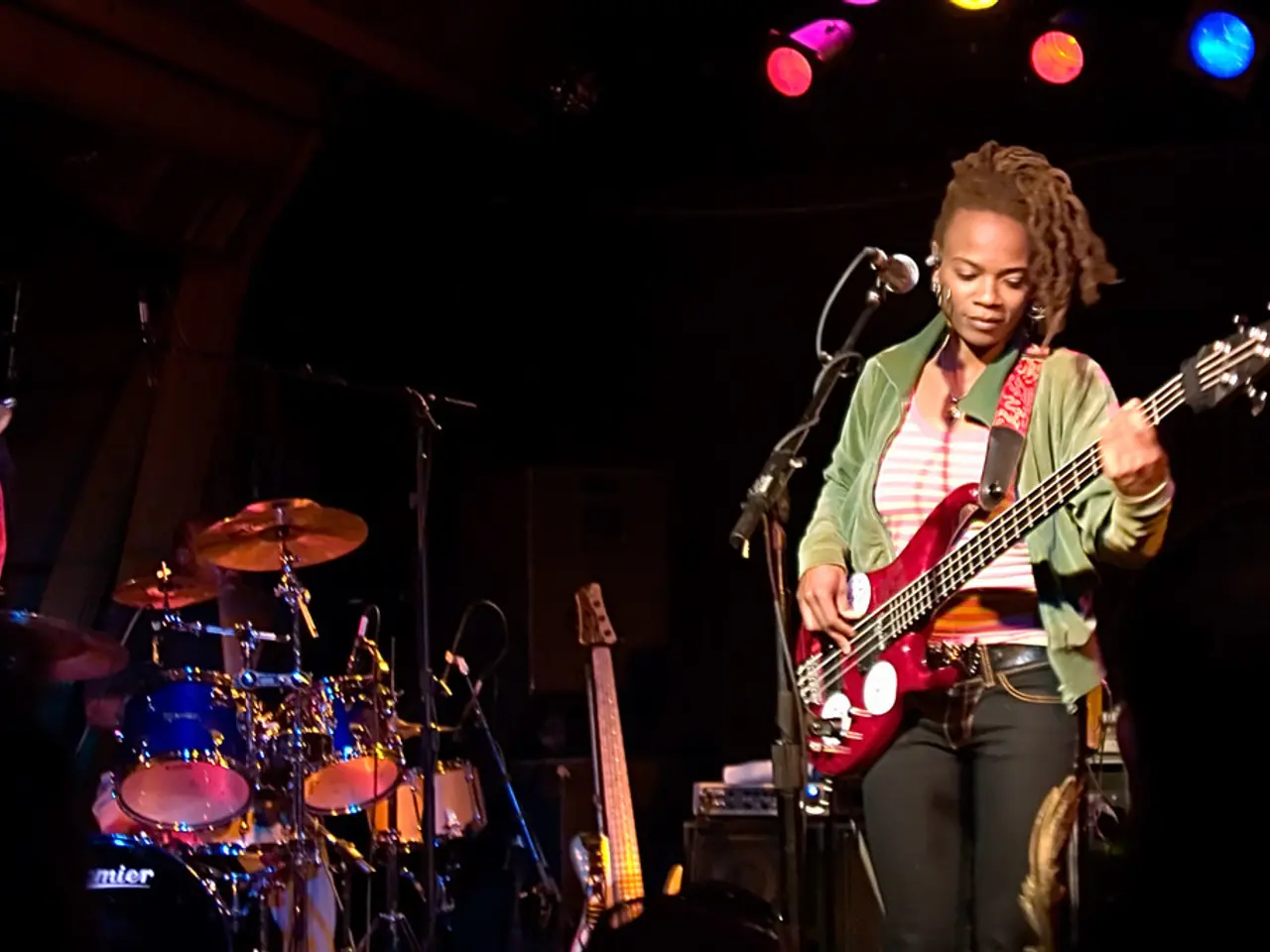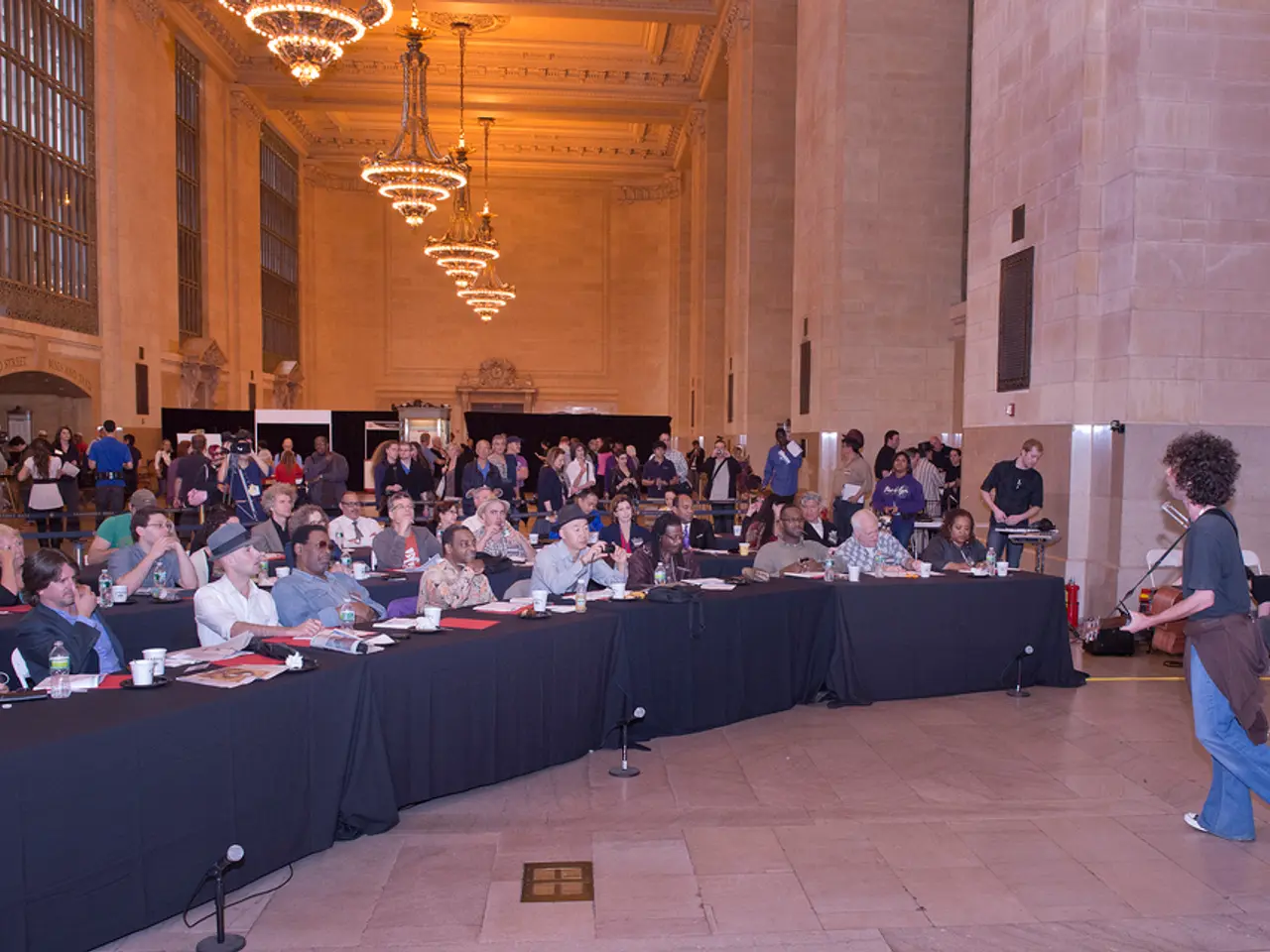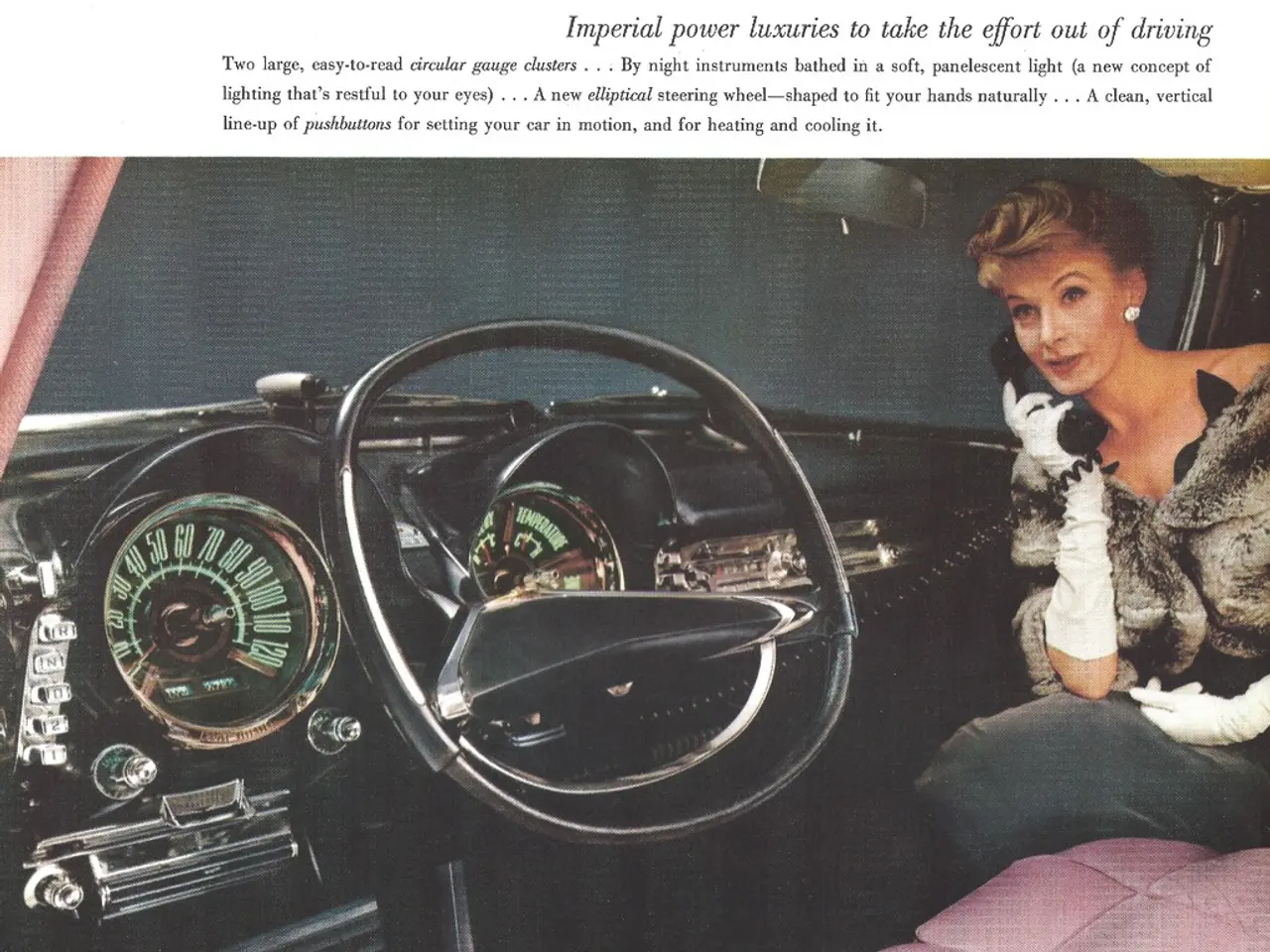Actor Andrew Barth Feldman signs on for 'Maybe Happy Ending', sparking controversy over diversity concerns
In the world of Broadway, the current season has been marked by a contentious debate over the casting of Andrew Barth Feldman in the lead role of "Maybe Happy Ending." The musical, which explores South Korean themes and originally featured an almost entirely Asian American and Pacific Islander (AAPI) cast, has been at the centre of discussions about authentic representation, cultural specificity, and racial equity.
The controversy erupted when Feldman, a white Jewish actor, replaced Darren Criss, an Asian American performer of Filipino descent, who originated the role and won a Tony Award for his performance. Critics argue that Feldman's casting undermines efforts to provide culturally specific roles to historically excluded communities, signalling a step backward in the movement for better inclusion and visibility of Asian artists on Broadway.
The Asian American Performers Action Coalition (AAPAC) expressed "profound disappointment," emphasizing that while white stories are often deemed "universal," stories about Asian people with Asian casts are rarely given the same status. This disparity perpetuates perceptions that have historically allowed whitewashing and exclusion of Asian actors from roles that reflect their own cultures. Actor Telly Leung called the casting change a "betrayal" to a community long excluded from Broadway stages, cautioning against erasing the Asian representation previously celebrated in the show.
Helen J. Shen, the lead actress and Feldman’s girlfriend, has publicly expressed mixed feelings about the situation, acknowledging the pain felt within the Asian community while also sharing her personal complex experience with the casting decision.
Despite the criticism, Feldman has not publicly commented on the controversy as of press time.
The debate extends beyond just Feldman's casting, but also about the broader pattern of sidelining Asian performers, even in works with Asian origins, creators, and themes. The show was originally conceived and written in Korean by Korean composer-lyricist team Will Aronson and Hue Park. For many Asian American theatergoers and artists, "Maybe Happy Ending" stands as a milestone and a marker of how far Broadway has come, and how easily that progress can be undone.
The casting of Welsh actor Jonathan Pryce as the Engineer in "Miss Saigon" in 1991 drew widespread protests when the production transferred from London to Broadway, as the character was Eurasian. The controversy surrounding Feldman's casting in "Maybe Happy Ending" echoes these past protests, highlighting the ongoing need for authentic representation on Broadway.
"Maybe Happy Ending" is more than just a quirky musical to many Asian American theatergoers and artists; it stands as a testament to the progress made and a warning of the potential for regression. As the debate continues, the focus remains on fostering a more inclusive and equitable Broadway for all performers and audiences.
References: 1. The New York Times 2. The Hollywood Reporter 3. Variety
Entertainment has been at the forefront of diverse conversations in the Broadway community, with the casting of Andrew Barth Feldman in "Maybe Happy Ending" sparking debates about authentic representation and cultural specificity. This controversy, reminiscent of past protests like the one against Jonathan Pryce's casting as the Engineer in "Miss Saigon," serves as a warning of potential regression in the pursuit of a more inclusive and equitable Broadway for all performers and audiences.








